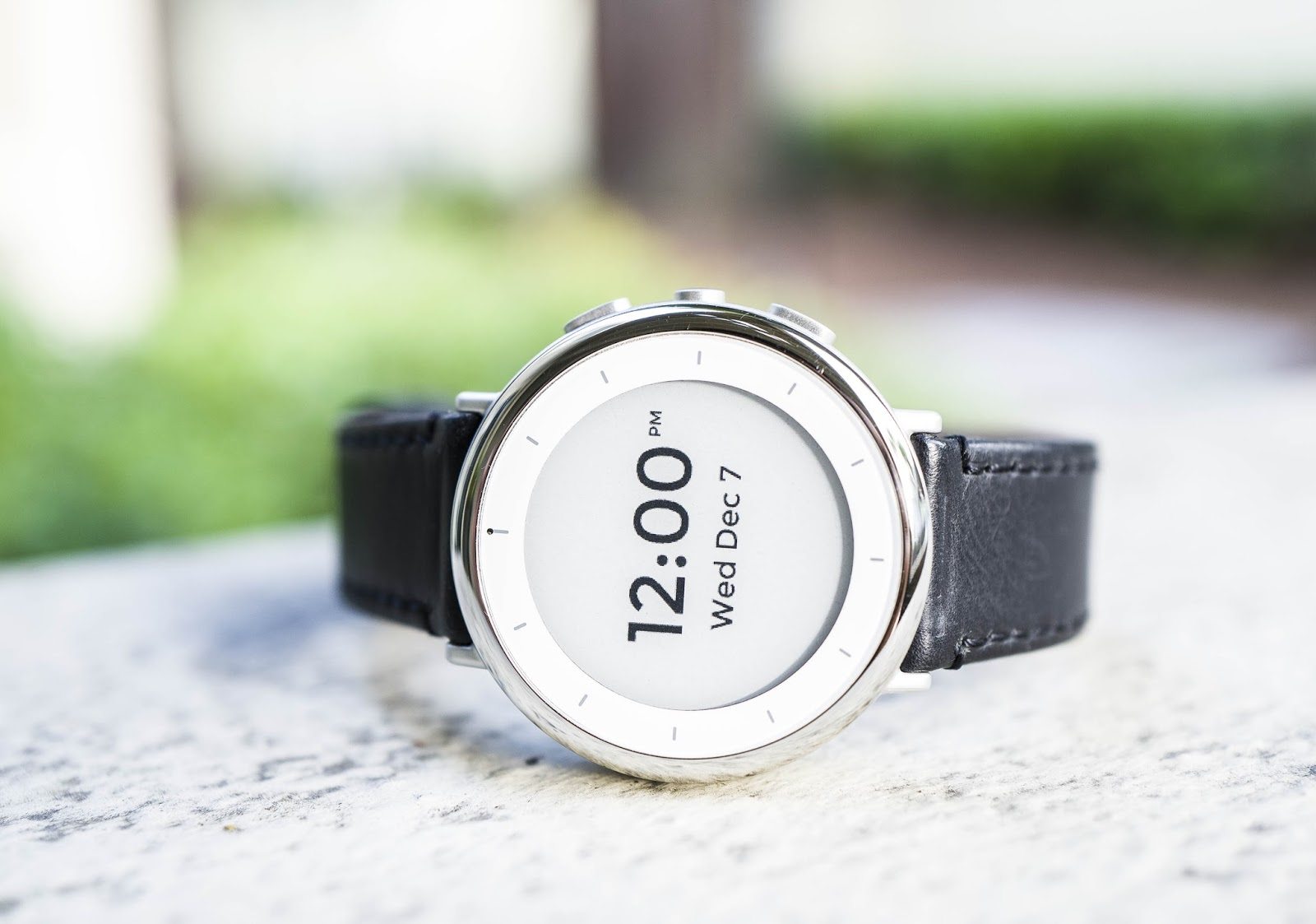Wearables Empower the Clinical Trials of the Future
Your Fitbit can do much more than monitor your steps.
With smart wearables forecasted to grow more than 13 percent annually over the next 15 years, there is ample room for data to help researchers and pharmaceutical companies augment clinical trials and observe or influence patient behavior.
Emerging Biosensor Captures, Encrypts and Stores Health Data

Verily Study Watch. Photo courtesy of Verily Life Sciences.
Just this week, Alphabet subsidiary Verily Life Sciences — formerly Google Life Sciences — introduced its Study Watch, a wearable that captures health data for clinical and observational studies, catering to the growing market for wearables in health trials.
The watch is equipped with multiple physiological environmental sensors “designed to measure relevant signals for studies spanning cardiovascular, movement disorders, and other areas,” the company notes in a blog post. The device collects and then encrypts and stores the health data, which is uploaded and processed in the cloud.
Already, Study Watch is set for use in several studies, including the Personalized Parkinson’s Project, a multiyear study that looks to identify patterns around progression and create more personalized treatment for those with Parkinson’s. It will also be used in a study by Duke University and Stanford Medicine exploring the transitions between health and disease, according to Verily.
Garmin Activity Trackers Log Activity for Long-Term RA Health
While researchers can’t get their hands on a Study Watch just yet — it’s an investigational device not available for sale — pharmaceutical companies and others are making use of wearables available on the market to enhance studies.
Garmin activity trackers are part of a pilot by biopharmaceutical company UCB to promote overall wellness and improve care for those with rheumatoid arthritis, for example.
The initiative includes a Wellness 4U Activity Tracker pilot program that provides a Garmin vivofit 2 activity tracker to monitor the activity and sleep patterns of patients, with the aim to engender healthier behaviors in people with immunological disorders.
Patients can access data on their daily activity through an online platform that also provides them with information and tips on ways to live healthier lifestyles. The data gathered through the program will also be used to provide physicians and researchers information around how behavioral changes have impacted the health of patients.
"Patients with immunologic disorders are often at higher risk for other conditions such as cardiovascular events. Leading an active and healthy lifestyle may help to prevent this, but patients often aren't sure where to start," said Dr. Prashanth Sunkureddi, Clear Lake Rheumatology in Houston, Texas, in a press release, HealthTech reports.
Sunkureddi notes that initiatives like Wellness 4U can be a catalyst for meaningful discussions between patients and providers that can ultimately improve long-term health outcomes.
“By tracking physical activity and sleeping habits through the Wellness 4U Activity Tracker, the first program of its kind for people with RA, patients can work with their physicians to track their progress and ultimately take an active role in their own wellness journey," Sunkureddi adds.
Digital Tools Speed R&D for Orphan Drugs
Wearables could also soon play a role in a collaboration that looks to create research and development opportunities around treating rare diseases. Online health network PatientsLikeMe has partnered with Shire Pharmaceuticals with the aim to bring together often geographically widespread patient populations impacted by highly specialized diseases, opening up R&D opportunities around the creation of orphan drugs, MobiHealth News reports.
Patients with rare conditions tend to be few and far between, which can prevent a large-scale clinical trial. The collaboration aims to aggregate the communities and make it easier and more profitable to test new drugs.
Aiming to equip the company with richer data, PatientsLikeMe expressed interest in providing its members with sensors and wearables, according to the source.
Philip Vickers, Shire’s head of research and development, said in a statement:
Establishing regular connections with patients and their caregivers has been challenging for researchers studying rare diseases. We typically study patients at a specific point in time in a clinical setting that may be far from home. Our collaboration with PatientsLikeMe will enable Shire to understand how disease impacts patients in their own environment and integrate data from multiple sources on a single platform. Our goal is to gather a more complete picture of the patient and caregiver experience that could potentially guide the development of new, more patient-centered treatments.









